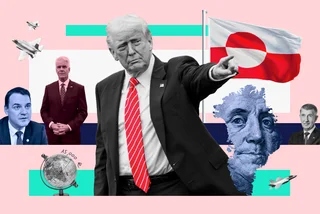Miloš Zeman, former prime minister, has been elected president of the Czech Republic, in the country’s first direct popular presidential election. Zeman, who was once head of the Social Democrats, replaces Václav Klaus, the famously Euroskeptic free-market politician. The two men outwardly stand on opposite sides of the political divide, but Schwarzneberg, Zeman’s defeated opponent, suggested it would be business as usual in the castle.
Before getting into this sense of continuity, and I stress sense, it might be important to look at the differences between the two men, because on a political level they’re not insignificant. Zeman has referred to Klaus’ voucher privatization as the “scam of the century” (in Czech). He is also much more openly in favor of state ownership, preferring that the brewery Budějovický Budvar remain a state enterprise.
PARTNER ARTICLE
On the question of Europe, Zeman couldn’t be in more opposition to his predecessor. Whereas Klaus’ hostility to the EU is one of his political trademarks, Zeman has admitted that he is a Eurofederalist (in Czech) which includes support for closer economic politics and a common tax system. In a more recent interview (in Czech), the president-elect showed continued support for the EU, favoring common politics in the area of foreign affairs, infrastructure, and defense, but stated that Brussels should stay out of matters to do with the naming of food. This is certainly a far cry from Klaus’s more strident blanket opposition to the EU.
So while the two men seem to have little in common on the surface, they have been linked by a number of journalists. Before the election, The Economist ran an article entitled “Karel Havel or Miloš Klaus” making the connection blatant. This was later picked up on in the local press (in Czech), though it’s safe to assume the view is no secret. Schwarzenberg leapt on the connection. Several papers from Germany have expressed skepticism about Zeman’s left-wing credentials. They have accused Zeman of being like Klaus in his pandering to nationalism and popular fears surrounding the status of the Beneš Decrees. But what is the substance of the assumed friendship?
The political scientist Jiří Pehe suggests the similarities between the two run much deeper. While he acknowledges the ideological differences of both men, he doesn’t put much stock in their politics. For him the political programs of the two are the same: themselves. He points to the “opposition pact” (opoziční smlouva), which allowed Zeman’s Social Democrats to form a minority government while ceding some power to Klaus’ Civic Democrats. Zeman justified the pact as a means to implement policies. However, it is more like the two were carving up the political pie.
It’s not only history which suggests the two men share political similarities. Both are belligerent towards political opponents and take a dismissive view of the media. This alone suggests that we won’t see much change at the castle.
Related articles












 Reading time: 2 minutes
Reading time: 2 minutes 
























